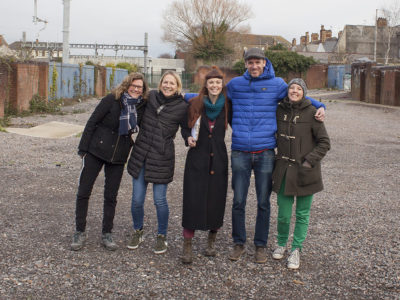Responding to the proposal last month, Simon Pickard, Liberal Democrat councillor for Cathays, acknowledged that crime had been cut, but said he was concerned that saturation zones “limited the potential positive growth of premises that offer an alternative to vertical drinking establishments, for example live music venues or restaurants.”
How have saturation zones affected areas? We asked businesses in City Road.
Rob Taylor, 34, manager of El Paso Mexican restaurant, said it has led to a proliferation of takeaway food outlets. “It’s cut the throat of all the businesses around here,” he said, “There’s no other kinds of restaurants.” He said he suspects restaurants are flouting the ban and selling alcohol, “under the table”. He also pointed out that a licenced supermarket has opened on the road. “How the hell did Tesco get a licence to sell alcohol?” he said. “Because it’s a big business.”
Manager of Salt ‘n’ Pepper Grill, Mohammed Imran, 25, said his restaurant gets around the policy by letting customers bring their own alcohol, adding that as a result it is easier not having to comply with council regulations, saying, “If the council give you a licence then you have to do this, you have to do that…”
Ifatu manager Chidi Okafor, 28, said that it has impacted badly on his business and that he merely wants to be able to serve African beer to customers with their meals. “To my knowledge there’s no trouble around here anyway,” he added.
Alcohol licences look set to be refused in two nightlife areas
The new “saturation zones” would mean that there would be an automatic objection to any alcohol licence application in Greyfriars Road and Churchill Way. The aim is to reduce alcohol-fuelled violence by limiting the number of drinking establishments in those areas.
Previous saturation zones, in St Mary Street, City Road and Crwys Road, are said to have been a success. “Police data shows that there have been significant reductions in a number of categories of crime, including violent crime, since the policy was introduced,” said a council spokesman.
Any application for a new or amended licence must show how it will meet the four criteria set out in the Licensing Act 2003: prevention of crime and disorder; public safety; prevention of public nuisance and protection of children from harm.
Responding to the proposal last month, Simon Pickard, Liberal Democrat councillor for Cathays, acknowledged that crime had been cut, but said he was concerned that saturation zones “limited the potential positive growth of premises that offer an alternative to vertical drinking establishments, for example live music venues or restaurants.”
How have saturation zones affected areas? We asked businesses in City Road.
Rob Taylor, 34, manager of El Paso Mexican restaurant, said it has led to a proliferation of takeaway food outlets. “It’s cut the throat of all the businesses around here,” he said, “There’s no other kinds of restaurants.” He said he suspects restaurants are flouting the ban and selling alcohol, “under the table”. He also pointed out that a licenced supermarket has opened on the road. “How the hell did Tesco get a licence to sell alcohol?” he said. “Because it’s a big business.”
Manager of Salt ‘n’ Pepper Grill, Mohammed Imran, 25, said his restaurant gets around the policy by letting customers bring their own alcohol, adding that as a result it is easier not having to comply with council regulations, saying, “If the council give you a licence then you have to do this, you have to do that…”
Ifatu manager Chidi Okafor, 28, said that it has impacted badly on his business and that he merely wants to be able to serve African beer to customers with their meals. “To my knowledge there’s no trouble around here anyway,” he added.





